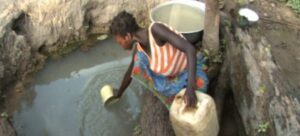South Africa still struggles with complexity of apartheid that existed for decades. I will like to particularly comment on the issues and problems of South Africa. Firstly, I have personally been to South Africa in numerous times. A friend of mine use to work with UN in Cape Town. And honestly speaking, Cape Town is an ineffaceable representation of the attractiveness and capacity of post-apartheid South Africa. However, for many black South Africans, this city epitomizes rather very poles apart. This seemed to be the only major megalopolis in South Africa where blacks are not the majority, and remains the same, divided.
I think improving structural racial equality for historically-disadvantaged black South Africans, including low-skilled and unemployed adults and youths, is a pertinent challenge for the South African government. This is even more difficult during the ongoing transition from apartheid capitalism to post-apartheid capitalism. As a result, huge healthcare inequalities existed in different communities and for different groups of people in South Africa. After due consideration, Groener (2013) concluded that some political and economic changes in South African health care system, during the transitions have created some possibilities to redress some structural racial inequalities. This can be viewed in terms of skills development and unemployment rates. As the future unfolds, let us bear in mind the late Nelson Mandela’s statement in the preface to the White Paper on Reconstruction and Development, “my government’s commitment to create a people-centered society of liberty binds us to the pursuit of the goals of freedom from want, freedom hunger, freedom from deprivation, freedom from ignorance, freedom from suppression, and freedom from fear. These freedoms are fundamental to the guarantee of human dignity” (Groener, 2013).
Groener, Z. (2013). Skills development and structural change: Possibilities for and limitations of redressing structural racial inequalities in South Africa. International Review Of Education / Internationale Zeitschrift Für Erziehungswissenschaft, 59(6), 723-749









